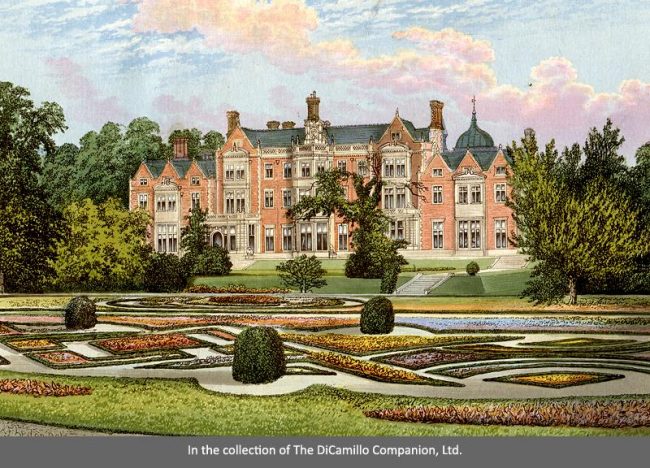
The House from "Morris's County Seats," circa 1875.
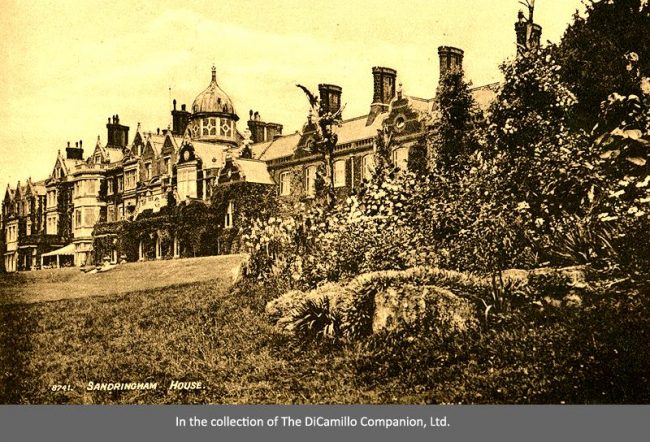
The Garden Facade from an early 20th century postcard
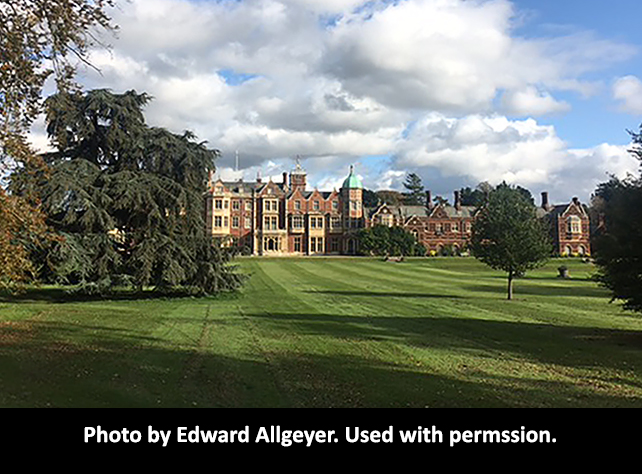
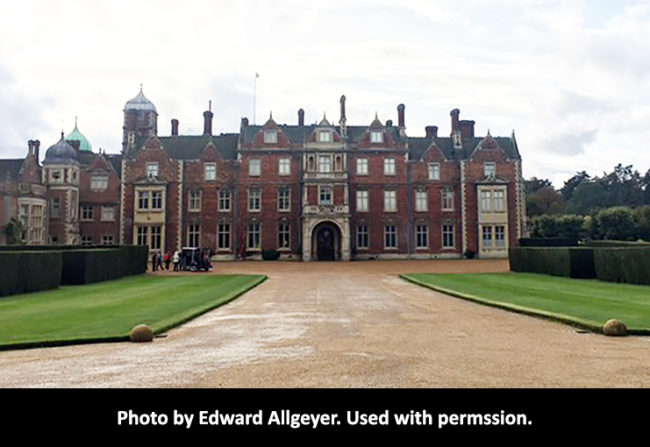
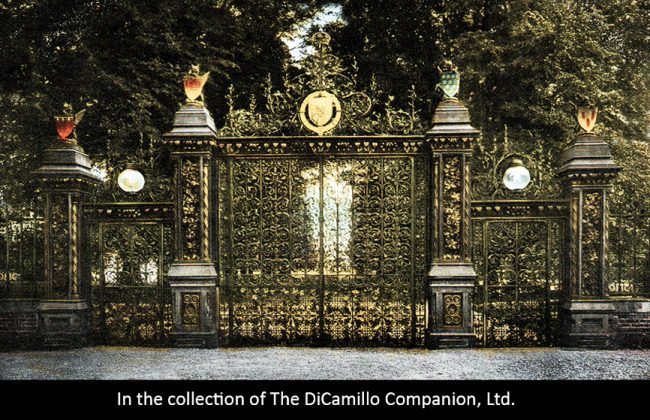
The Norwich Gates from an early 20th century postcard
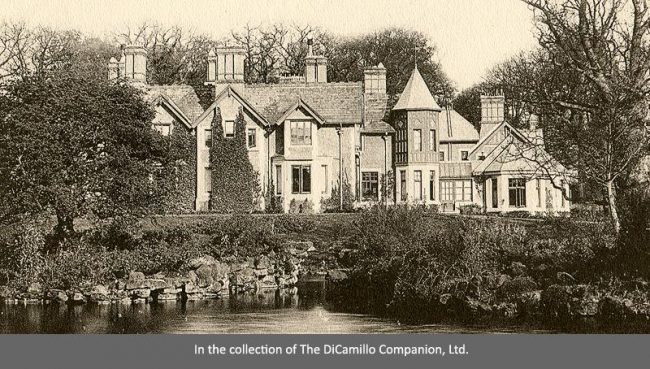
York Cottage from an early 20th century postcard
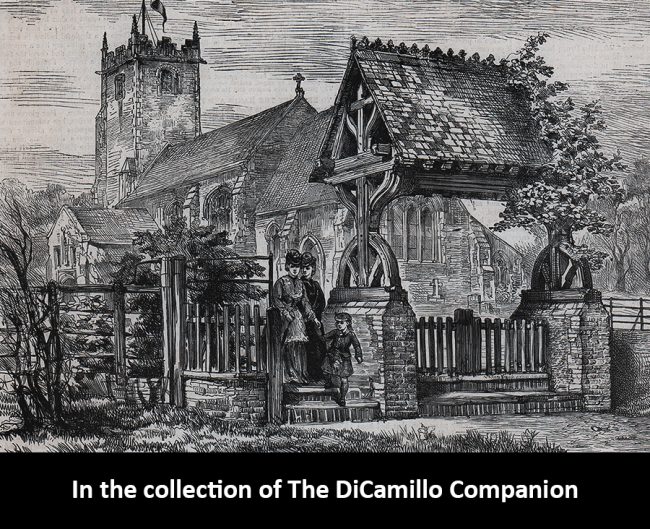
St. Mary Magdalene Church, Sandringham, from the Feb 17, 1872 issue of "Harper's Bazar."
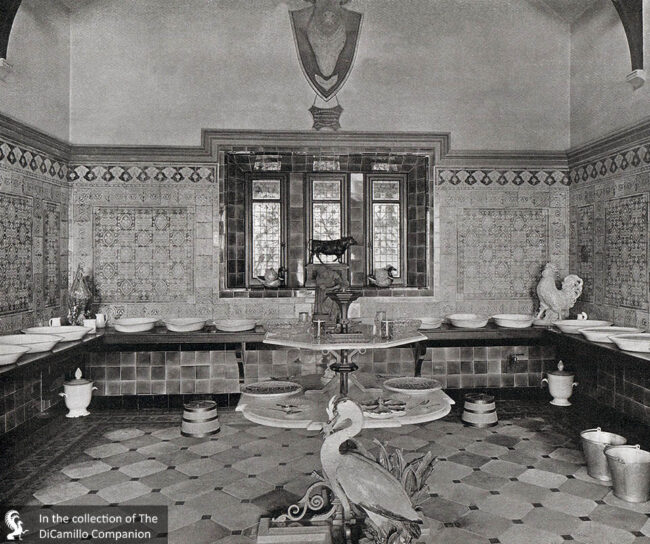
Queen Alexandra's Dairy from a 1901 photograph
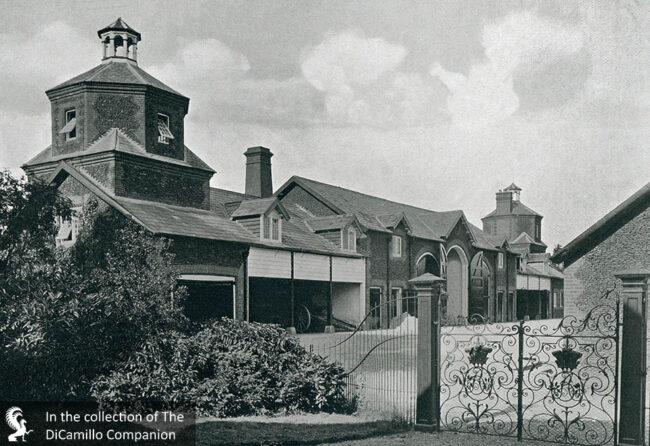
Farm buildings from a 1901 photograph
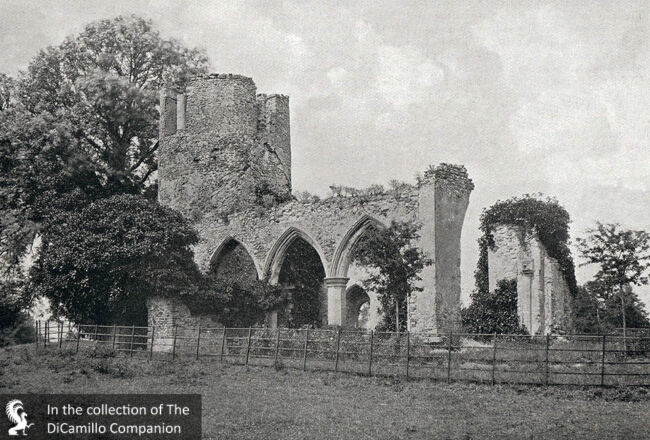
The ruins of Appleton Church from a 1901 photograph
Earlier Houses: There was an Elizabethan house on the site that was replaced, circa 1771, with a two-and-a-half story, seven-bay house, to which Teulon added a two-story porch and conservatory for the Cowper family. The Prince of Wales (later Edward VII) purchased the house in 1862 and demolished all but the conservatory, which he converted into a billiard room.
House & Family History: The Sandringham Estate was purchased as a country house for the Prince of Wales (later King Edward VII) in 1862. The Georgian house on the site was mostly demolished and rebuilt between 1870 and 1900 (the conservatory of the earlier house was incorporated into the current house and converted into a billiard room). Sandringham is a house of brick with Ketton stone dressings and, on the east facade, has a five-bay central block of three-and-a-half stories, with two bays on either side and a two-story bay with a segmental pediment—11 bays in total. The ballroom, to the southeast, is of four bays and was added in 1883. Sandringham was rebuilt after a fire in 1891 and further expanded. The great saloon has fluted columns and a wooden gallery on round arches. The ceiling of the great drawing room has a painted centerpiece of sky and pheasants with putti. In the dining room there are fine tapestries—the 1876 gift of King Alfonso XII of Spain. In the 1960s there were plans to demolish the the current house and replace it with a modern building; instead, in the 1970s some demolitions took place, leaving Sandringham as a house of 274 rooms today. Queen Alexandra and her sons (Prince Albert Victor, Duke of Clarence, and Prince George, later King George V) all died at Sandringham, as did King George VI. King Olav V of Norway, a grandson of King Edward VII, was born on the estate. The royal family generally spend the month of August and the Christmas holidays at Sandringham.
Comments: Nikolaus Pevsner called Sandringham House's design "frenetic Jacobean."
Garden & Outbuildings: The Sandringham Estate, the personal property of the monarch, today stands at 21,000 acres. The Norwich Gates were designed by Thomas Jeckyll and made by Barnard's of Norwich (see photos in "Images" section). The gates were a wedding gift to the Prince of Wales from the City of Norwich in 1863 and were exhibited at the Great Exhibition of 1862. During World War I the grounds were bombed by the Germans, leaving craters in the park. Sandringham was noted during the reign of George V as one of the finest sporting estates in Britain, its shoots being particularly fine. York Cottage (also known as Bachelor's Cottage, see photo in "Images" section) was the adored home of the Duke and Duchess of York (later King George V and Queen Mary), who lived here until 1925. Speaking of this special place, George V is famously quoted as saying "...dear old Sandringham, the place I love better than anywhere else in the world." The Duke and Duchess of Sussex (aka Harry and Meghan) were given the use of York Cottage as a wedding gift by Queen Elizabeth II after their May 2018 wedding. The Duke and Duchess of Cambridge (Kate and William) were given a similar gift by Queen Elizabeth—the use of Anmer Hall on the Sandringham Estate, after the birth of their eldest child, Prince George.
Chapel & Church: On the estate is the Grade II*- listed St. Mary Magdalene Church (see drawing in “Images” section). The Perpendicular style 16th century church was significantly restored in the 19th century and contains many memorials to members and relations of the royal family. The church features a 9th century AD Greek font and is particularly noted for the silver gifted to the royal family by Rodman Wanamaker. Wanamaker, a devoted Anglican, was the son of the immensely successful Philadelphia department store magnate John Wanamaker. He presented the church’s altar, reredos, pulpit, and 17th century Spanish processional cross (all silver) to Queen Alexandra as a tribute to her husband, King Edward VII. (Wanamaker also donated a massive processional cross to Westminster Abbey.)
Architect: Arthur William Blomfield
Date: 1890Architect: Samuel Sanders Teulon
Date: 1855-circa 1861Architect: Albert Jenkins Humbert
Date: 1870Architect: Robert William Edis
Date: 1883Country Life: XI, 722, 1902.
Title: Sassoon: The Worlds of Philip and Sybil
Author: Stansky, Peter
Year Published: 2003
Reference: pg. 266
Publisher: New Haven: Yale University Press
ISBN: 0300095473
Book Type: Hardback
Title: Burke's & Savills Guide to Country Houses, Volume III: East Anglia
Author: Kenworthy-Browne, John; Reid, Peter; Sayer, Michael; Watkin, David
Year Published: 1981
Publisher: London: Burke's Peerage
ISBN: 0850110351
Book Type: Hardback
House Listed: Grade II*
Park Listed: Grade II*
Current Seat / Home of: King Charles III
Past Seat / Home of: SEATED AT EARLIER HOUSE: Cobbe family, 1517-1686. Hoste-Henley family, 18th century. John Motteux, 1836-43. Charles Spencer Cowper. 1843-60; William Francis Cowper-Temple, 1st Baron Mount Temple, 1860-62. SEATED AT CURRENT HOUSE: The Prince of Wales (later Edward VII), 1862-1901; King Edward VII, 1901-10; King George V, 1910-17; Saxe-Coburg-Gotha family here from 1862 until 1917, when George V changed the family name to Windsor. King George V, 1917-36; King Edward VIII, 1936; King George VI, 1936-52; Queen Elizabeth II, 1952-2022.
Current Ownership Type: The Crown / Royal Family
Primary Current Ownership Use: Private Home
Ownership Details: Privately owned by the king. The house is open to the public when the royal family is not in residence.
House Open to Public: Yes
Phone: 01553-772-675
Fax: 01485-541-571
Email: [email protected]
Website: https://sandringhamestate.co.uk/
Historic Houses Member: No